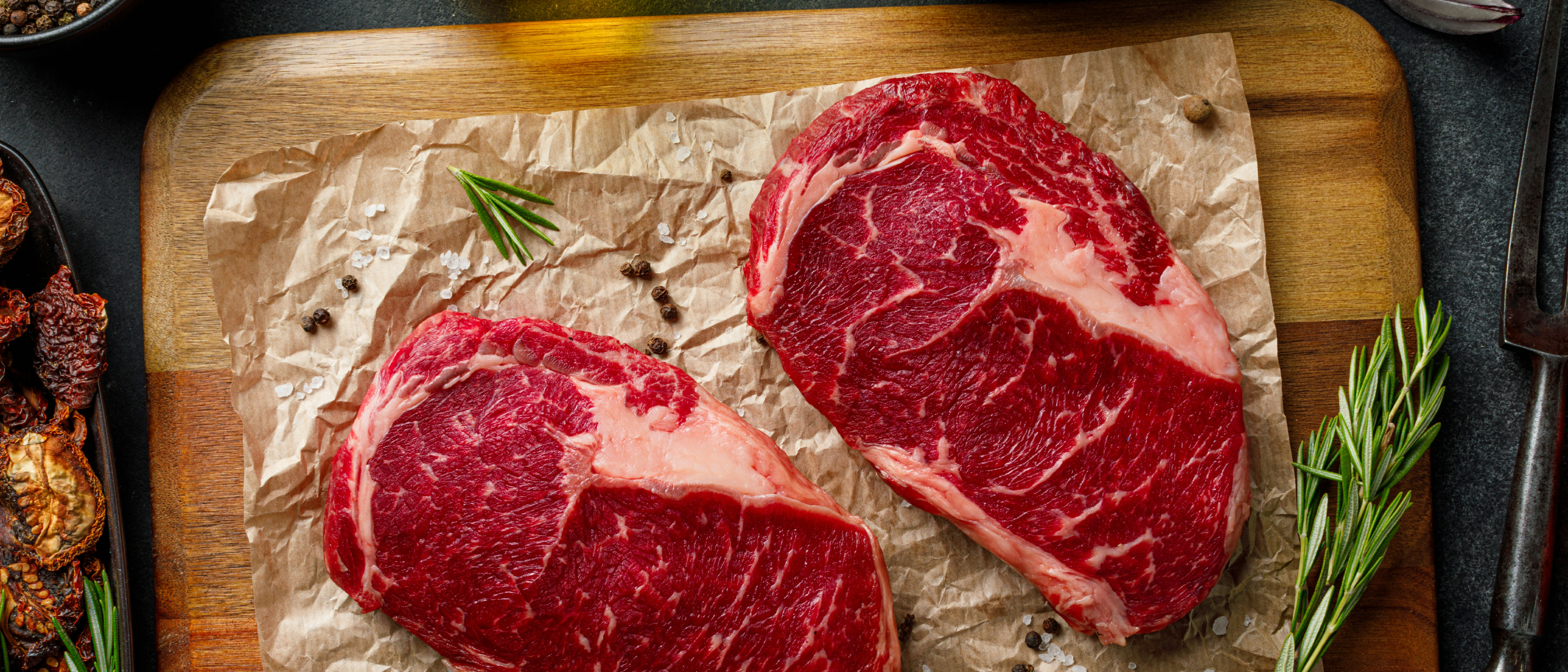What Happens to Your Body When You Eat Beef Every Day
Posted on June 18, 2025 • 4 min read • 693 wordsExploring the dual impact of daily beef consumption on health, from nutritional benefits to potential risks, based on recent academic research.

Beef, a staple in many global diets, is celebrated for its rich flavor and nutritional density. As a primary source of high-quality protein, iron, and zinc, it plays a role in supporting muscle health, energy production, and immune function. However, the question of “what happens if you eat beef every day?” has sparked debate, with concerns about long-term health risks like cardiovascular disease (CVD) and colorectal cancer. This article synthesizes findings from recent studies to unpack the dual impact of daily beef consumption—highlighting its nutritional benefits while addressing potential health trade-offs.
1. Nutritional Benefits: A Powerhouse of Essential Nutrients
Beef is renowned for its dense nutrient profile, particularly for delivering essential amino acids (EAAs), which are critical for muscle protein synthesis (MPS). A 2023 review by Ferrando et al. emphasized that free-form EAAs in beef stimulate MPS more effectively than equivalent amounts of plant-based proteins, making it a valuable resource for maintaining muscle mass, especially in aging populations or those with anabolic resistance [1] .
Beyond protein, beef is a key source of heme iron, which is more bioavailable than plant-based non-heme iron. This is crucial for preventing iron deficiency anemia, particularly in women of childbearing age. Additionally, beef provides zinc (supporting immune function) and vitamin B12 (vital for nerve health and DNA synthesis), nutrients often underconsumed in plant-centric diets [2] .
2. Cardiovascular Health: A Nuanced Relationship
While beef’s nutritional benefits are clear, its impact on cardiovascular health remains a topic of scrutiny. A 2024 meta-analysis by Sanders et al. examined randomized controlled trials (RCTs) and found that daily unprocessed beef intake had minimal effects on most blood lipids (e.g., total cholesterol, triglycerides) but was associated with a small increase in LDL-cholesterol (0.11 mmol/L) compared to low/no beef diets [3] . This aligns with concerns about saturated fat in beef, which some studies link to CVD risk, though the evidence remains conflicting [4] .
3. Cancer Risk: Long-Term Implications
Research on beef and cancer focuses primarily on colorectal cancer (CRC). A 2024 historical cohort study by Dankner et al. involving 27,754 participants found that a 100g/day increase in beef consumption was associated with a 46% higher CRC risk (HR=1.46, 95% CI: 1.06-2.02) [5] . This may relate to heme iron promoting oxidative stress in the gut or cooking methods (e.g., grilling) producing carcinogens like heterocyclic amines. Conversely, a 2024 Mendelian randomization study by Hoang et al. noted that fruit intake, not beef, showed a causal link to reduced CRC risk, suggesting dietary context matters [6] .
4. Balancing Intake in a Healthy Diet
The key to mitigating risks lies in moderation and dietary balance. A 2023 microsimulation study by Kennedy et al. projected that a 30% reduction in daily beef intake could lower type 2 diabetes, CVD, and CRC cases over 10 years, highlighting the benefits of portion control [7] . Pairing beef with fiber-rich foods (e.g., vegetables, whole grains) and limiting processed beef (high in sodium and preservatives) can further reduce risks.
Food Nutrition: Key Nutrients in Beef
Beef’s nutritional value makes it a dietary asset, but understanding its composition is critical for balanced intake. Below is a breakdown of key nutrients in 100g of cooked beef (lean cuts) and daily recommended intakes (DRIs) for adults:
| Nutrient | Amount per 100g | Daily Recommended Intake (Adults) |
|---|---|---|
| Protein | 26g | 46-56g (gender-dependent) |
| Saturated Fat | 5g | <20g (≤10% of total calories) |
| Heme Iron | 2.7mg | 8-18mg (gender-dependent) |
| Zinc | 4.8mg | 8-11mg (gender-dependent) |
| Vitamin B12 | 2.4μg | 2.4μg |
Protein supports muscle repair, while heme iron aids oxygen transport. However, saturated fat intake should be limited to avoid CVD risks.
Conclusion
Eating beef daily offers significant nutritional benefits, particularly in delivering essential amino acids, iron, and B12. However, it also carries potential risks, including a small increase in LDL-cholesterol and elevated CRC risk with high intake. The key to harnessing beef’s benefits lies in moderation—aiming for 50-100g/day (depending on overall diet) and prioritizing unprocessed cuts. Pairing beef with fiber-rich foods, reducing processed meat consumption, and maintaining a balanced diet (e.g., Mediterranean-style) can mitigate risks. As research evolves, individual needs (e.g., age, health status) should guide beef consumption, ensuring it complements rather than compromises long-term health.
Sources
-
Ferrando AA, Wolfe RR, Hirsch KR. International Society of Sports Nutrition Position Stand: Effects of essential amino acid supplementation on exercise and performance. Journal of the International Society of Sports Nutrition 20:1-26.(2023). doi:10.1080/15502783.2023.2263409 ↩︎
-
Kebebe EG, Ibrahim N, White R. Nutritional impact of excluding red meat from the Canadian diet. Meat Science 199:109161.(2023). doi:10.1016/j.meatsci.2023.109161 ↩︎
-
Sanders LM, Palacios OM, Wilcox ML. Beef Consumption and Cardiovascular Disease Risk Factors: A Systematic Review and Meta-analysis of Randomized Controlled Trials. Current Developments in Nutrition 8:104500.(2024). doi:10.1016/j.cdnut.2024.104500 ↩︎
-
Maki KC, Dicklin MR, Kirkpatrick CF. Saturated fats and cardiovascular health: Current evidence and controversies. Journal of the American College of Lifestyle Medicine 15:1-6.(2021). doi:10.1016/j.jacl.2021.09.049 ↩︎
-
Dankner R, Chetrit A, Ben Avraham S. A historical cohort study with 27,754 individuals on the association between meat consumption and gastrointestinal tract and colorectal cancer incidence. International Journal of Cancer 154:1-12.(2024). doi:10.1002/ijc.35084 ↩︎
-
Hoang T, Cho S, Choi JY. Genetically predicted dietary intake and risks of colorectal cancer: a Mendelian randomisation study. BMC Cancer 24:1-12.(2024). doi:10.1186/s12885-024-12923-1 ↩︎
-
Kennedy J, Alexander P, Smith Taillie L. Estimated effects of reductions in processed meat consumption and unprocessed red meat consumption on occurrences of type 2 diabetes, cardiovascular disease, colorectal cancer, and mortality in the USA: a microsimulation study. The Lancet Planetary Health 8:e347-e357.(2024). doi:10.1016/S2542-5196(24)00118-9 ↩︎